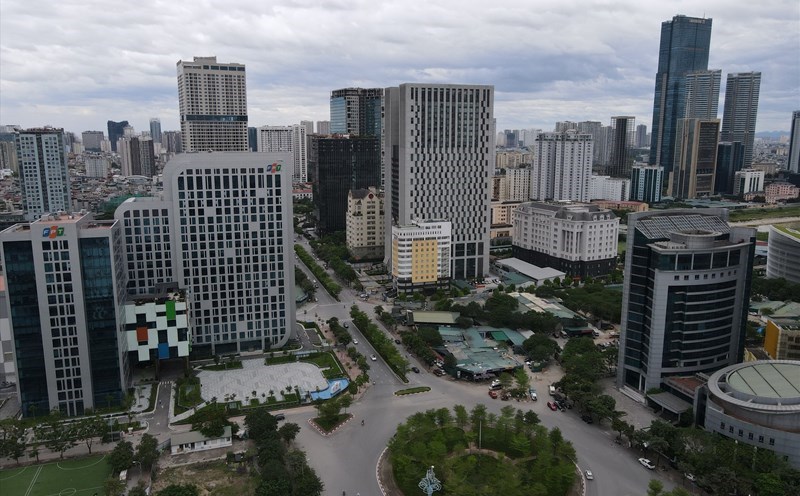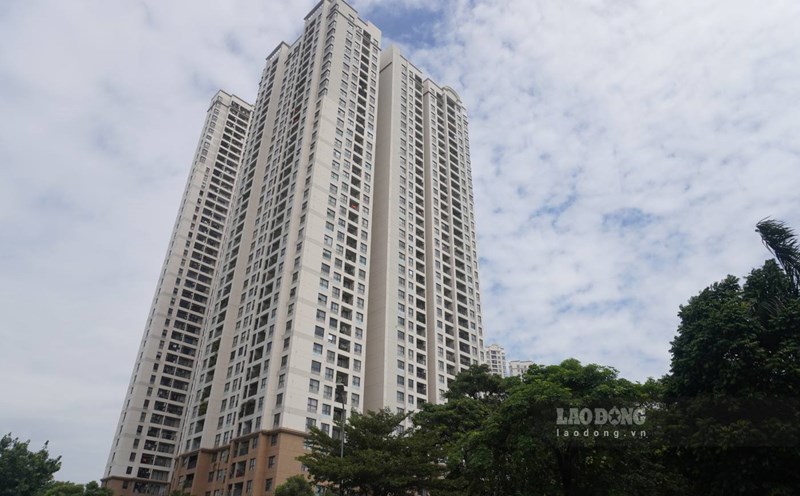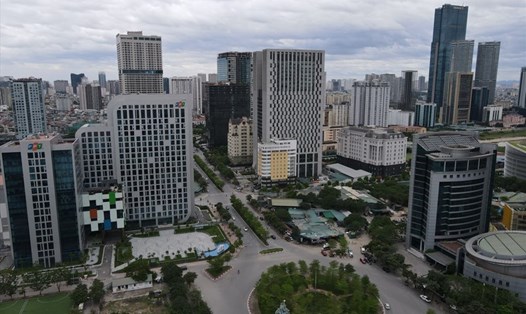Trust from social housing policies
At the seminar " decoding real estate capital flows and opportunities for real home buyers" organized by Lao Dong Newspaper on October 22, lawyer Pham Thanh Tuan - Hanoi Bar Association, real estate legal expert, commented that the market is having fundamental factors to expect primary housing prices to decrease.
According to Mr. Tuan, the first factor is supply: In the coming time, the general housing supply, especially social housing, will have a big change with the goal of building 1 million units. At the same time, people will also have easier access thanks to the income confirmation mechanism and simpler procedures".
Mr. Tuan said that the policy mechanisms in Resolution 201 of the National Assembly, along with Decrees 192 and 261/2025/ND-CP recently issued by the Government, have created a legal foundation and clear incentives for both investors and buyers.
"This is the first time we have had a relatively synchronous policy framework, which can strongly promote the supply of social housing, thereby positively affecting primary housing prices" - Mr. Tuan said.
Need to reduce heat from land prices
Dr. Tran Xuan Luong - Deputy Director of the Vietnam Association for Real Estate Market Research and Evaluation (VARS IRE) pointed out that housing prices in Vietnam are currently twice as high as the world standard if compared correlated with income.
Vietnams average income per capita is about 7,000 - 8,000 USD/year, while the average house price is 80 - 100 million VND/m2. It takes people 40 - 60 years to buy a house, while in Thailand or Malaysia, this rate is only about 15 - 18 times their income" - he analyzed.
According to Mr. Luong, the root of the problem lies in land prices and urban planning.
"Due to the lack of standard data, valuation still relies on auction prices, and the more the auction is, the more the price increases. In addition, residents and housing supply are concentrating in large cities, causing prices to increase further".
He said that when transport infrastructure, beltways and satellite cities are developed, social costs will decrease and housing prices will cool down.
Mr. Luong emphasized that maintaining stable land prices and simplifying administrative procedures are key factors. One of the hot issues at present is the proposal to limit credit for second home buyers. According to Mr. Tuan, this is only based on quantity, while the value of each apartment is very different.
"Some people bought two apartments with a total value of 5 billion VND, but others bought one apartment for up to 2 million USD. Therefore, it is necessary to calculate both quantity and value, avoiding the application of machinery".
He emphasized that administrative solutions are only short-term, but in the long term, it is necessary to focus on increasing supply - especially in the segment of social housing and affordable commercial housing. Management agencies need to review the progress of the 1 million social housing project, increase the rate of social housing in commercial projects from 20% to 30%, and speed up legal approval to avoid price spikes due to prolonged time.
Solutions for young people to buy a house
Dr. Tran Xuan Luong said that young people are facing many financial barriers. They often only accumulate 20-30% of the apartment value, while proving their income and credit history is still difficult. He advised: Lenders should only borrow up to 50-60% of the asset value, build a reserve fund and have a long-term financial plan.
Mr. Luong also suggested that banks need to be more flexible in appraisal, and can assess credit reputation based on non-traditional data such as electricity, water, and internet bills.
Banks not only lend, but also need to accompany customers - help them develop their financial capacity, because when customers are mature, the loan is safer, said Mr. Luong.
Both experts agreed that the market is moving in the right direction, although it cannot decrease sharply immediately. When policies on social housing, satellite urban planning, administrative reform and credit are implemented synchronously, housing prices will gradually approach people's real income.
According to Mr. Tuan, in the next 2 to 3 years, housing prices may "accelerate" significantly, especially if social housing prices are considered a reference level for the commercial market. When supply improves, the high-end segment is also forced to adjust to better suit its affordability.











